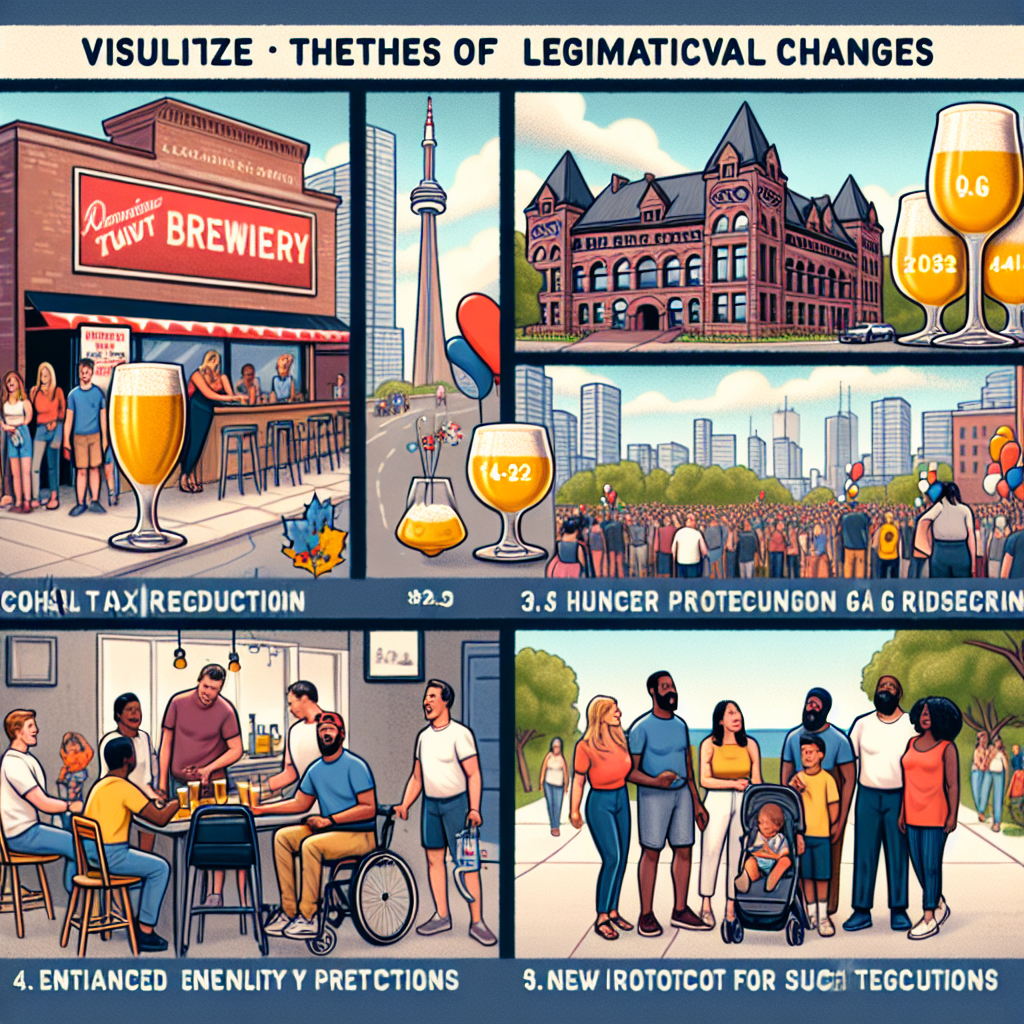Ontario Unveils New Laws Effective August 2025

Key Changes in Ontario Starting August 2025: A Comprehensive Overview
Beginning in August 2025, Ontario will implement a series of new laws and regulations that promise to reshape the landscape for local businesses, renters, and consumers. These changes stem from the province’s 2025 Budget, titled "A Plan to Protect Ontario," which aims to bolster local industries, alleviate consumer costs, and safeguard vulnerable populations amid economic fluctuations.
Alcohol Tax Cuts: A Boost for Local Producers and Consumers
One of the most significant changes will be the substantial reduction in taxes on locally produced alcoholic beverages, effective August 1, 2025:
-
Spirits: The tax on Ontario-made spirits sold at distillery retail stores will decrease from 61.5% to 30.75%. For example, a $50 bottle of gin could see its tax drop from $30.75 to $15.38, resulting in savings of 10-20% for consumers.
-
Craft Beer: The province’s microbreweries, numbering over 300, will also benefit from reduced taxes. The tax on draft beer will lower from 35.96¢ to 17.98¢ per litre, while non-draft beer will drop from 39.75¢ to 19.88¢ per litre, translating to an approximate 42¢ savings on a six-pack.
- Cider and Ready-to-Drink Beverages: Markups on Ontario-made cider will fall from 60.6% to 32%, and ready-to-drink beverages will see similar reductions. While the LCBO may face a revenue loss of up to $200 million annually, the anticipated increase in local sales and tourism could invigorate Ontario’s economy.
Strengthening Tenant Protections in Toronto
In a move to enhance tenant rights, Toronto will introduce a new renovation license requirement aimed at curbing “renovictions.” This bylaw, effective from July 31 but impacting tenants in August, mandates:
- Landlords must obtain a renovation license before issuing eviction notices.
- A minimum of 120 days’ written notice to tenants.
- Tenants must have the right to return post-renovation at the same rent.
Violations could lead to fines of up to $100,000. Given Toronto’s rental market’s tightness—vacancy rates below 2% and average one-bedroom rents exceeding $2,400—this legislation aims to protect long-term and low-income tenants and discourage unscrupulous eviction practices.
However, some landlords have expressed concerns over added bureaucracy and potential delays for legitimate renovations. The city has promised a streamlined process to mitigate these issues.
Additional Legislative Changes
The province will also introduce several other notable changes, including:
-
Gig Workers’ Protections: Effective July 1, 2025, gig workers will benefit from a minimum wage, regular pay periods, and enhanced protections under the Digital Platform Workers’ Rights Act.
-
Fertility Treatment Tax Credit: A refundable tax credit of up to 25% will be available for fertility treatment expenses, with a maximum benefit of $5,000.
- Public Input for Budget 2026: The federal government is currently accepting public feedback until August 28, 2025, to inform future economic strategies.
Conclusions and Implications for Ontarians
The upcoming changes in Ontario reflect a concerted effort to strengthen the local economy, protect workers and renters, and encourage consumer spending. For Ontarians, these developments mean:
-
Lower Costs: Expect reduced prices on local alcohol, which may encourage more consumers to choose Ontario-made products.
-
Enhanced Tenant Rights: Renters in Toronto will have improved protections against unjust evictions, fostering greater housing stability.
- Support for Gig Workers and Families: New protections for gig economy workers and financial relief for families seeking fertility treatment signal a broader commitment to social equity.
As these changes unfold, it’s crucial for residents to stay informed, adapt to new regulations, and leverage the opportunities created by these legislative updates. Whether you’re a business owner, a renter, or a consumer, understanding these shifts will empower you to navigate Ontario’s evolving landscape more effectively.
For those seeking guidance on navigating these changes, experienced immigration consultants and legal advisors remain available for assistance.
Reference



